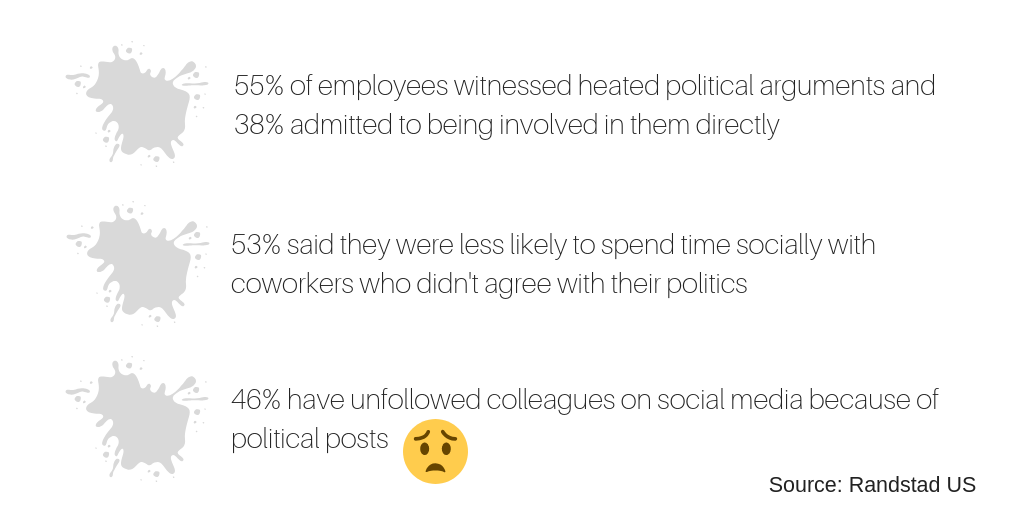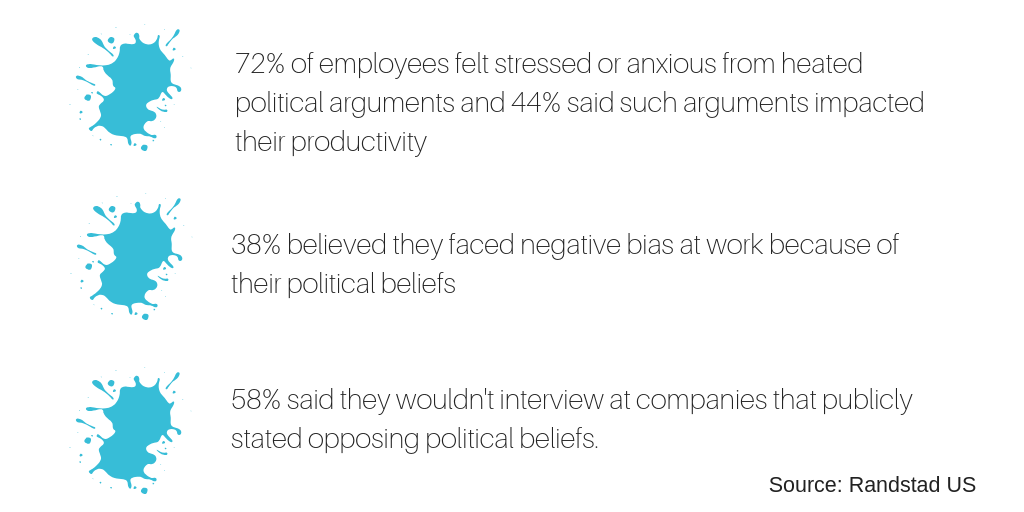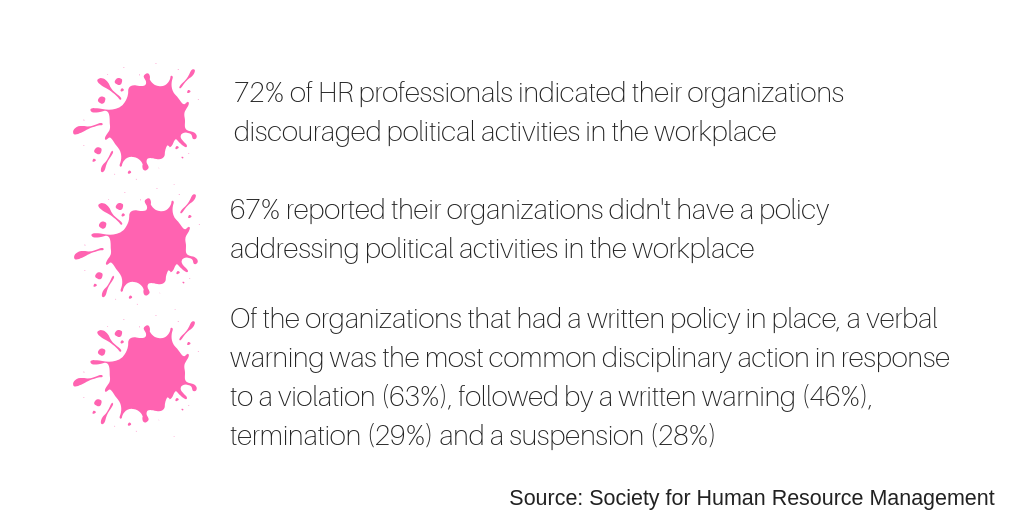If you’re one of the majority of people for whom the very idea of putting…

Politics are pervasive. How’s your employer dealing with this reality?
No matter your political bias, we’ve all been there. Either witness to or participant in rants or heated debates over political candidates, agendas, propositions, bills and Supreme Court appointments. We’ve certainly read and perhaps even occasionally (or frequently) posted opinion pieces and personal statements expressing strong political views.
I read a blog recently that discussed how heated political debates have become more commonplace in the office with the approaching midterms. The headline wasn’t entirely surprising but it bothered me enough to consider how organizations are addressing politics in the workplace of late. Here’s some data I unearthed during my research. Randstad report.
Sadly this doesn’t come as much of a surprise. We all know the U.S. is more politically divided than ever before. But how does this impact employee morale, organizational culture and productivity? The same survey reported:
Now this I can relate to. During my 10 years as a career advisor, only in the last two has politics bubbled to the surface. Clients are increasingly incorporating an organization’s political position as one of the priorities for their career transition. It now features alongside growth opportunity, social stewardship/investment, compensation, culture, organizational values, leadership team, location, work/life balance and the flexibility to work remotely.
Does the discussion of politics have a place in the office?
Some, (including myself) would argue ‘no’ but it’s unavoidable given how polarized the country is right now. So what are companies doing to address this? Do they have policies on political discourse in the office? And if so, how do they enforce them? Enter the Society for Human Resource Management and specifically a survey they completed in June 2016 before the general election where:
How relatively easy or difficult it is for HR professionals to implement and enforce political activity policies that comply with national labor laws (the National Labor Relations Board classifies political discussion as a ‘protected concerted activity’)? But that also ensure employees don’t feel discriminated against or bullied? Some organizations are clearly on it and its high time for others to follow suit.
The plot thickens. Cue political activist CEOs
Highly visible executives have added to the turmoil. Activist CEOs from Starbuck’s, Paypal, Under Armour and Salesforce – to name but a few – have spoken out (and even taken action) on a range of topics. Should CEOs take a stance on an agenda that directly affects their business and its employees? Absolutely. But it needs to be informed, considered, highly strategic, carefully timed, thoughtfully articulated and above all done for the right reasons.
Key takeaways?
For HR professionals:
As if you don’t have enough on your plate already! This complex issue is worth paying close attention to. Is there a way to reframe it to your advantage? Aside from doing the right thing for your employees, could an even-handed and clearly communicated ‘politics in the workplace’ policy be used as a competitive differentiator for employee recruitment and retention?
For CEO activists:
Are you doing it for the right reasons? Will it help your people and your business? Consult others before going to market with a radical message. Many PR firms have created specialized practice areas to help navigate the murky, high-stakes and politically charged waters.
For everyone else:
If you’re actively interviewing or transitioning careers, get smart on how relatively political the company and its leaders are. Does the organization have policies and guidelines to govern political discourse and activity?
Without a clear solution in sight I’d argue we should all do our damndest to prevent heated political debates from tarnishing our work environment and compromising professional relationships. Thoughts?






